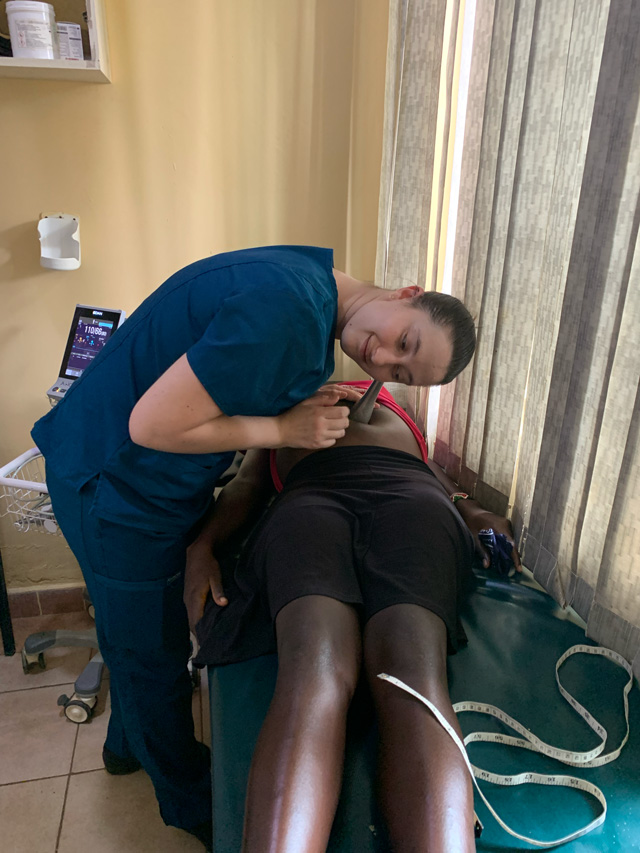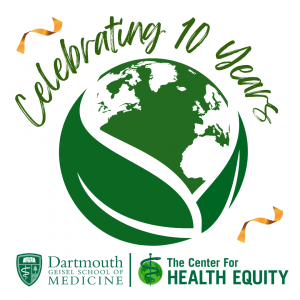Carly Ratekin MED'25 came to medical school looking for answers to big questions on global health: What do you need to build sustainable interventions to improve health? How do you identify and cultivate local leaders to champion the cause? How do you center your community's needs as you scale up projects and include new stakeholders? How should resources be used to collect data on project implementation? What can medical students really do to save lives? During her time with the Lwala Community Alliance care team, she found answers to every one of these big questions. She says though the mold of her career path is not yet set, her work in Kenya has opened her eyes to the possibilities of community-driven change and galvanized her desire to improve health care delivery in the places that need it most.

Through her Center for Health Equity Fellowship, she received for 2023, Carly was able to deepen her professional and personal connections with the Lwala Community Alliance (LCA) - expanding her view of medical care and research to include a global perspective. LCA was founded in 2007 by Fred and Milton Ochieng, who attended Dartmouth College before medical school at Vanderbilt University. They founded a hospital in their hometown of Lwala Village, Kenya, in memory of their parents, who both died from AIDS. Though they started small, in the 16 years since its founding, LCA has provided low-cost, high-quality health care directly to patients at their hospital in Lwala Village, become a center of excellence for HIV care, transformed the role and value of community health workers, improved access to skilled birth attendants, significantly reduced maternal and under-5 mortality, and published multiple papers documenting their innovative improvements to the community's health. Most impactfully, they have strategically partnered with the Kenya Ministry of Health on a multitude of projects ranging from obstetric hemorrhage response to adolescent health as they scale up the improvements in care seen at Lwala Village to the entire nation.
Before starting medical school, Carly served as a Peace Corps Volunteer in Guyana, where she was exposed to low-resource healthcare delivery and fell in love with maternal and child health. She built upon those experiences throughout her medical training at Geisel, though didn't yet feel satisfied in her understanding of how to leverage data to improve health care systems in low-resource environments—a task she had really struggled with during her time in the Peace Corps. With the help of incredible mentors at Geisel, she connected with LCA, which actually does the work of systems-level change she had so many questions about.
After a year of preparation, Carly spent four weeks at LCA working on the Helping Babies Breathe initiative and assisting with data collection on its implementation, shadowing and participating in clinical visits to learn about maternal and child healthcare delivery at LCA and in the surrounding villages. Above all she's learned from her primary work on the Helping Babies Breathe project was an incredible introduction to healthcare delivery in low-resource settings - which she had never experienced at this level. Carly finished all third-year core rotations just prior to her trip, sampling many methods and cultures of healthcare delivery in the US, though none compared to the health centers and hospitals she saw in Kenya. Carly shared how the staff at Lwala Hospital were outstanding teachers and helped her learn about diagnosing and treating malaria, providing family planning, administering childhood vaccines, prenatal testing and care, chronic disease management, infant deliveries, and so much more.
She describes the infectious pride that everyone at LCA has for their work and how inspiring it was to step away from the stresses of medical school and reconnect with the work that she truly loves doing. Carly loved the creativity everyone used to find solutions to problems, the community that formed around sick patients, and the collective drive to improve the system. "There were many moments during my time in Lwala that were grounding and fulfilling in a way no other rotation has been - and on reflection, it's very clear to me that I want to shape my career around working in global maternal and child health," says Carly. She is now considering taking a gap year to pursue a Master of Public Health degree to further her skills and understanding of research methods, statistics, and implementation science to extend the impact she can have as a physician-public health researcher.
